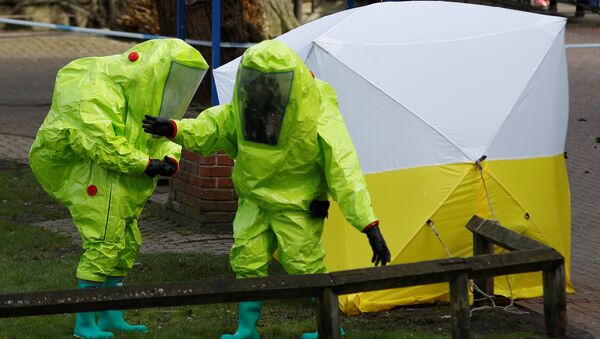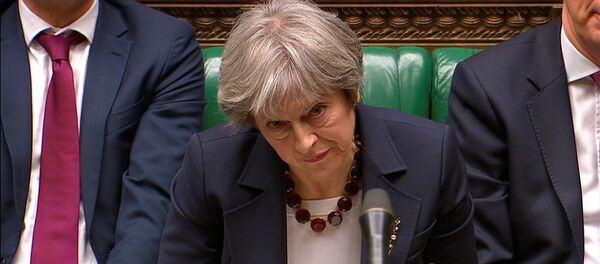"The issue is very sensitive. From the very beginning the Russian side requested to provide it with the necessary information … but was denied not only the right to somehow get engaged in the investigation but to obtain at least some minimum information. This constant is well-known, and this is an absolute fact. Everything else is speculation. With all due respect, I cannot perceive any newspaper as a source, especially on such a serious issue," Kremlin spokesman Dmitry Peskov told reporters when asked to comment on the issue.
In late March, Russia's Novaya Gazeta newspaper published an article claiming that Russia was secretly developing poisonous substances, which might have been obtained by a third party, as allegedly stated in the materials of the criminal case of Kivelidi’s murder.
READ MORE: Skripal Case 'Provocation' Carried Out by UK Intelligence — Russian Ambassador
Ivan Kivelidi, the founder of Rosbiznesbank bank, was killed in 1995 via exposure to a nerve agent spread on a telephone receiver. The name and the formula of the poison were not made public during or after the investigation. In 2007, a Moscow court found Vladimir Khutsishvili, a member of the board of Rosbiznesbank directors, guilty of killing Kivelidi. The businessman has refused to plead guilty.
Rink has recently been interviewed by Sputnik, as one of the developers of the Novichok chemical weapons system, over the UK allegations that one of the nerve agents of this USSR-designed system might have been used to attack former Russian spy Sergei Skripal on the UK soil in early March this year. The chemist said the poisoning was carried out too unprofessionally to have been the work of the Russian special services.
READ MORE: Yulia Skripal, Poisoned in UK, Reportedly Regains Consciousness, Ability to Talk
Russia has requested access to samples of the substance used to poison Skripal and his daughter, but was denied. Moscow has refuted all allegations of its involvement in the poisoning and offered to participate in the investigation of the incident.
The Organisation for the Prohibition of Chemical Weapons (OPCW) declared in September last year that Russia had destroyed its entire arsenal of chemical weapons.





